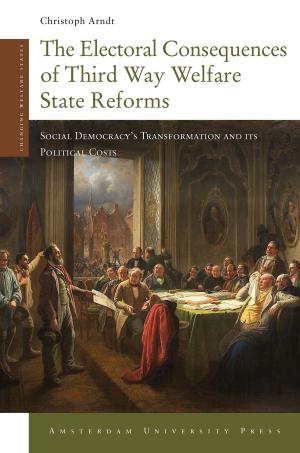Doctoral thesis: The book has been published as doctoral thesis at the Department of Political Science, Aarhus University under the same title in June 2011 and was printed by the local publisher Politica. This publication is not commercially available and was mainly distributed to colleagues from my research section. A couple of copies were sent to colleagues from abroad on request.
The book analyses the electoral consequences of welfare reforms under Third Way Social Democracy in four European countries.
Conclusie: Third Way Social Democracy suffered from a lasting electoral setback among social democracy’s core constituency as a consequence of welfare state reforms and retrenchment
In all advanced Western nations, policy-makers have implemented encompassing welfare state reforms in recent decades breaking with past welfare arrangements. In particular, social democracy engaged in significant policy change under the Third Way paradigm. However, the Third Way introduced welfare state reforms breaking with social democracy’s traditional reputation on welfare that had built the ties with the core constituency in the 20th century.
This book provides a comparative study of the electoral consequences of Third Way welfare state reforms. The main argument is that Third Way reforms indeed produced an electoral setback for social democrats and that the nature of the setback is contingent on the electoral system and the party competition social democrats face when reforming the welfare state
The analysis shows that while Swedish social democracy did not suffer an outright setback among its traditional core constituency by sticking to traditional social democratic principles, this happened to British, Danish and German social democracy after these parties engaged in welfare state reforms under Third Way agendas thereby alienating their core voters. The actual electoral consequences are determined by the electoral system and the type of party competition.
Bedoeld voor
1 Academics
2 Postgraduate students
3 Undergraduate students
Sales Points:
1. One of the first books which analyses the electoral consequences of welfare state retrenchment and reforms from a comparative perspective with a focus on social democratic parties.
2. The book accounts for social democracy’s electoral decline since the turn of the millennium in several countries despite the aim to mobilize new voter groups under the Third Way. 3. The book demonstrates how welfare state reforms can change the political landscape in a lasting manner as established parties suffer from a dealignment of their core voters or even a realignment of their voters with other parties when they reform the welfare against the social policy preferences of their core constituency.

